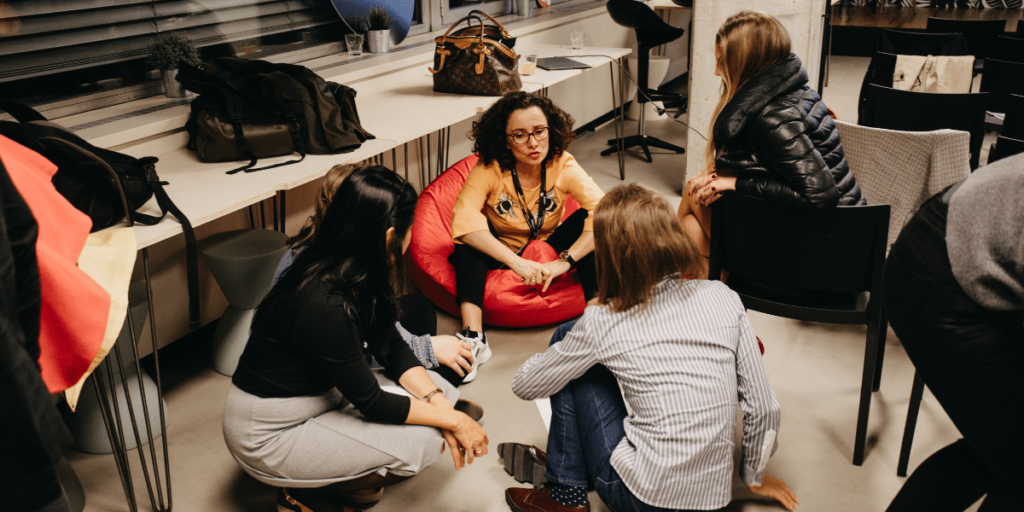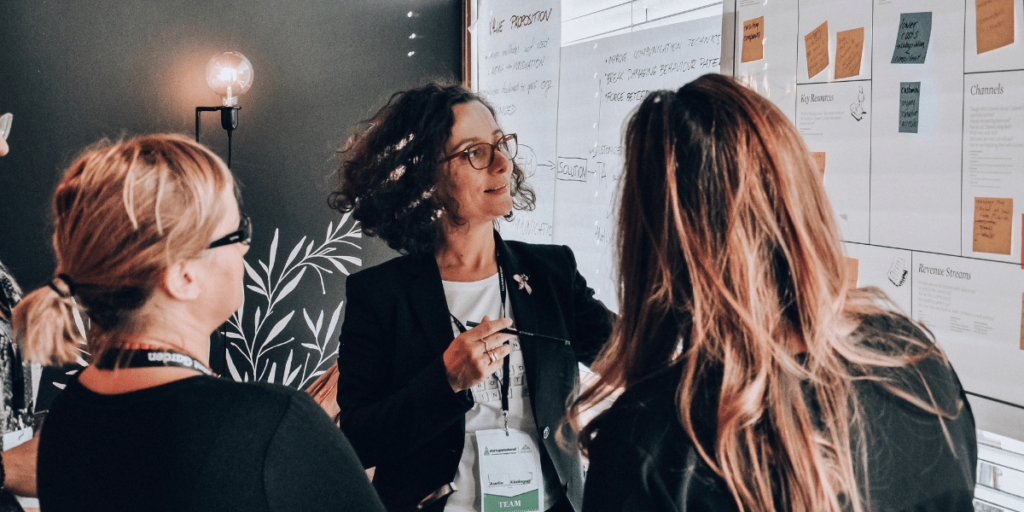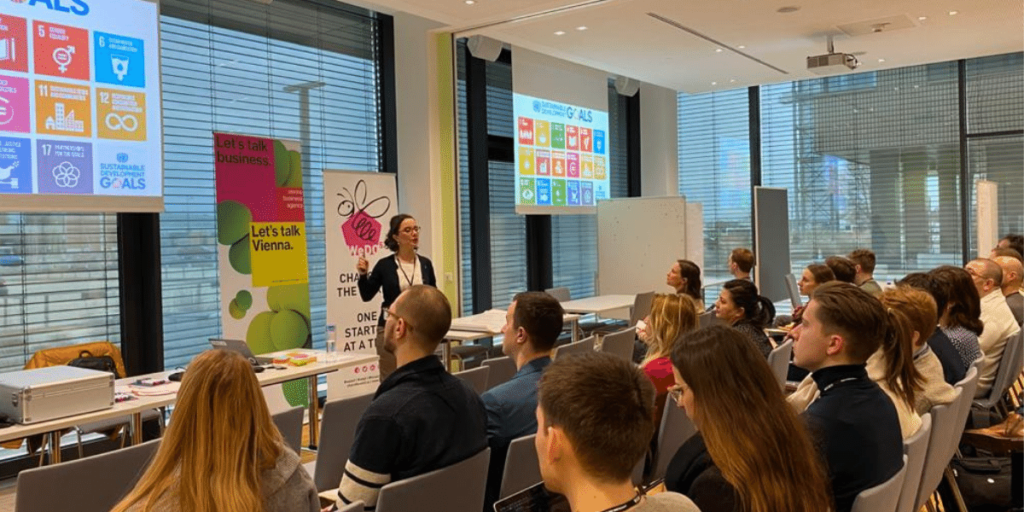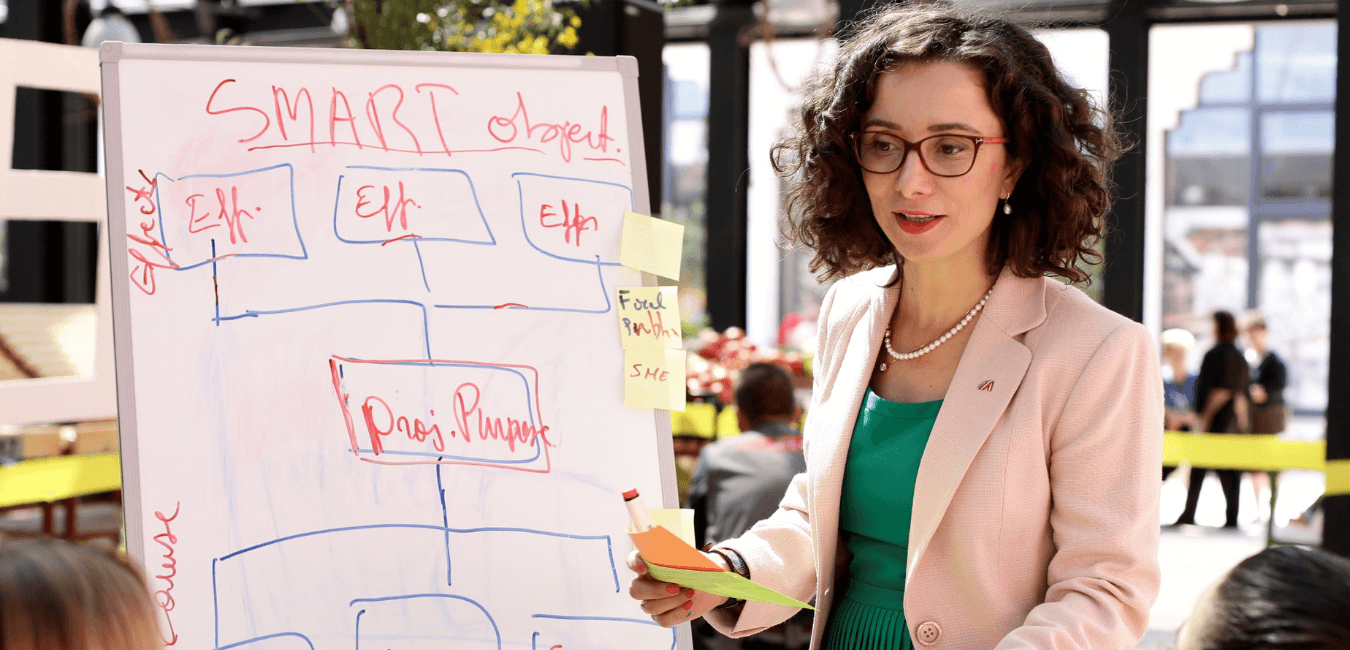
Asetila Koestinger
Vienna, Austria. Social entrepreneur. Community builder for women entrepreneurs. Zebras Unite chapter lead.
A Zebra is
… a business that doesn’t stand for only one thing anymore. And that is designed intentionally to be good and profitable, for us and for future generations.
Challenging the status quo
First of all, we need to start by naming the real issues. We must start talking about the climate crisis, not merely climate change.
Secondly, we have four billion people that live at the bottom of the income pyramid. One billion of these people live in extreme poverty. On the other hand we have higher on the pyramid one billion people that are stuck in bullshit jobs that are exploitative have no purpose and in part even dangerous.
And thirdly we have to learn from what this pandemic taught us: I see hundreds of companies going bankrupt everywhere in Europe, not because they are bad companies but because they were designed just for one thing: profit. During the pandemic, despite hard lockdowns in most countries around the world, we still could purchase everything we really needed from milk to toilet paper, from sushi to tofu and also books and pens. Still most economies around the world broke down. The most important learning is: Does it mean that our economies broke down just because we didn’t buy the things we don’t need???
Asetila’s ideal future
We have to really think about what the future brings and how we can build businesses that are resilient.
Most of the companies that exist today will not exist in 2050. But those built on purpose in order to solve real problems that matter, these are the businesses of the future.
I hope that for our future, we can design purposeful economies that are not based and designed only on GDP values and forecasts, but that are designed to serve everyone.
We have to build societies that are resilient for whatever comes next.
Capital infrastructure of the future
The capital infrastructure leaves a lot to be desired. I don’t want to repeat what has already been said. I just want to highlight the following points:
First let’s start with ourselves as impact entrepreneurs: I’m from the social entrepreneurship world where it still sometimes feels bad to make and raise money. I grappled with this myself until I understood that we need money because we want to make a big impact.
The bigger the impact we’re trying to make, the more money we need.
My hope is that in the future, startup financing will be more evenly distributed. In my perfect world, we would have a 50/50 ratio between female and male founders for the very simple reason that startups are designed and built to solve customer problems. Customer problems are 50% female, so how come only nine or ten percent of startups are womxn-led?
We simply need to make sure that womxn are given the chance to be in charge of designing the solutions to their own problems themselves.
Give them a shot at designing, building, failing and creating again. THAT would be a perfect world for me. And once we have 50% womxn founders, the capital distribution will follow.
The startup culture of the future
I already talked about a higher rate of female-led startups but it doesn’t stop there. We need a startup culture that embraces diversity on many levels. Instead of stereotyping your typical row of developers, we should envision startup teams as including the musician, the chemistry professor or student, the agricultural innovator, etc. We also need to have diversity not just in terms of gender, but also in terms of disciplines, age, ability and so on
In my opinion diversity means inviting someone to a Viennese dance ball. Inclusion means asking them to dance a waltz with .
Austria is a small country but it’s also a diverse one. People come with all kinds of backgrounds and disciplines, genders and languages. Every new team member that speaks a different language creates value for that company because it’s a bridge into a different world to buy, to sell and to see this world from a new customer’s point of view.
I think a startup culture that embraces neurodiversity and diversity of backgrounds, disciplines, genders and languages is a good place for everybody.
The community of the future
I think the future IS community. I love the exit to community approach of Zebras Unite because we here in Central Europe know that it works from our own past. Genossenschaften – cooperatives – have always been part of our culture. Our post-war countries were built on the back of co-ops.
When we talk about the community of the future, we have to make sure we build ecosystems, not egosystems. Thinking WE instead of ME makes us stronger as a whole.
I think the attitude toward Exit to Community will change. At the beginning of this journey, I started talking to people about Exit to Community and some of them said that it wouldn’t work. But recently, they have circled back, read the Zine and told me that they get it now, that it makes sense and they can actually see it happen. On the other hand many Eastern European countries that experienced communism have to relearn what a co-op can be; in the past they were obligatory and seen as an evil.
We now have a chance to redefine what a co-op can be and show people the upside of voluntarily opting into a co-op.
Asetila’s contribution to the future
I play different roles as a co-founder of an environmental startup, a community builder for women-entrepreneurs and as a chapter lead for Zebras Unite Vienna.
My startup is called Greenwell Energy: Put very simply, we take over old oil and gas wells and refurbish them to geothermal wells. Typically when oil and gas wells are empty, after years of use, the oil companies liquidate them thus fill them with concrete and they can’t be used anymore. But these wells are very deep and very hot because the earth is very hot. So instead of wasting them, our goal is to produce geothermal energy, and to use it in heat-intensive agricultural production.
Especially farmers that grow unseasonal or un-regional produce, they have to do so in greenhouses using fossil fuels to heat them. By upcycling retired wells for geothermal energy, we reduce the use of fossil fuels while leveraging what’s already in the ground. And in fact, it’s a treasury at our doorstep: We have over 800 producing oil wells in Austria, there are 85,000 wells in Europe and over 1.2 million wells worldwide. And that’s not even counting gas wells.
Regarding women in tech startups there is not much difference to men. Exactly like them we can do startups, we can do scaleups and shift-ups and, of course, we can do screwups.
And this is also one of the reasons why I co-founded WeDO5 as Austria’s first address for female-led early-stage impact startups. The 5 in the name stands for the 5th SDG: gender equality. We all know that there are not enough female startup founders out there for many reasons. And once they are and they become good everyone wants to support them to scale or harvest these few successful ones.
We fail exactly like men fail, but we do get back up, adjust our crown and keep walking.
But in order to harvest we have to farm first; that’s why we started with the GoodStartup School at WeDO5. We noticed that everything people (and especially girls) learn about entrepreneurship is not learned at school but somewhere else. The GoodStartUp School is a place that focuses on farming entrepreneurship at an early stage and at an early age and not just harvesting it. The GoodStartup School is working to democratize entrepreneurship and entrepreneurship education for ALL women so that also women from under resourced and underprivileged communities have a chance to join the future generations of innovators and entrepreneurs.
Our vision is to create a society where half of the startup businesses are led by female founders.
Lastly, I tell everyone about Zebras Unite and how I started the first chapter in Vienna. After reading Sex and Startups, I started telling people that I ( and Greenwell) was not a unicorn but a Zebra startup and more and more people responded “I’m a Zebra, too!” For the first time since starting Greenwell Energy, a STEM startup, as a female co-founder, I felt embraced. At the same time, it bugged me that the entrepreneurial ecosystem was so cluttered and spread out. As recently as two years ago, it felt as though everyone did their own thing, swimming in their lane without much exchange or cross-pollination. So I thought if we tried talking and thinking together, with each other for each other, maybe we could learn more and faster from each other’s experiences. So the first idea was just to share and to create this feeling that we don’t have to work in isolation, but that we can create more value if we do it together. And from there, we got so much traction that I started the chapter to rally other Zebra startups in Austria!
There is a special place in heaven for womxn who help other womxn grow, rise and shine!
How can we support you?
On the local level, I wish more startup founders who are Zebra-aligned would share their experiences and lift others up with them. Because I believe that by helping others, we become stronger.
From the international community, I would love for us all to become more active and share best practices. I’m happy to share what I learned with the international Zebras Unite community. I’ve done a lot of good things and I’ve made mistakes that others can learn from. Sharing is caring, right?
The fairy tale of natural born entrepreneurs no longer holds true
And please, do whatever you can in your small or big community to bring entrepreneurship into schools! Young people should know that entrepreneurship is also an option for them. We all know that the fairy tale of natural born entrepreneurs no longer holds true.
One question for the community
How can we ensure that young generations are more solution-oriented instead of problem-oriented?
Shout-out
- Belonging is working to foster more women in tech. The problem is that women study exactly the same as men but they leave tech very early because the environment is not women-friendly. Belonging is trying to change that.
- Alpengummi. They are creating natural chewing gum from local pine resin and beeswax instead of petroleum.
- Traivelling. They are about buying train tickets as easy as flight tickets, so it’s not only about traveling but also creating the experience.
- Jamba Careers. They create possibilities and careers opportunities for people with disabilities by building digital skills and breaking down barriers. Then they connect people and their talents with sustainable companies.
- Sleepify – creating a 100% recyclable mattress made from quality materials.
- SDG Innovation Lab– and accelerator like for SMEs to help them be lean and innovative like a startup by designing solutions to the SDGs
- WeDO5– Support women and girls to build impact startups and Changing the World One (female) Start-up at a Time. My initiative to help women and girls to build startups.
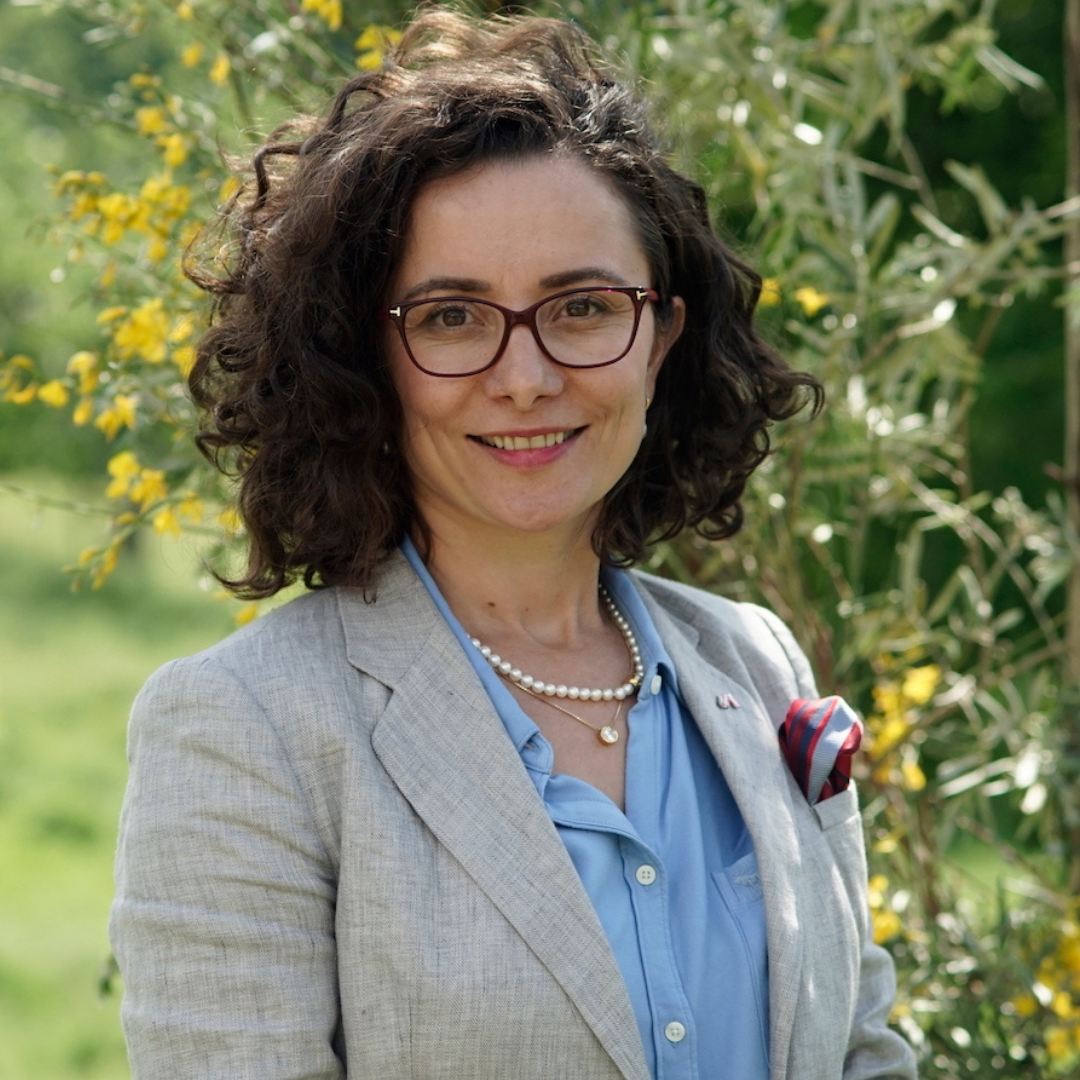
Asetila Koestinger
Vienna, Austria
Social entrepreneur. Community builder for women entrepreneurs. Zebras Unite chapter lead Vienna.
